Portland, Oregon-based Chef Salimatu Amabebe is best-known for her vegan Nigerian pop-up dinners. But in early 2017, motivated by the lack of space and representation for the black community, she launched another dinner series titled Black Feast. Each month, Amabebe creates food inspired by the work of a different African American artist. She began the series to create a dialogue, as well as celebrate some of the artists who helped shape her, and the intimate dinners welcome people from all walks of life; guests are encouraged to participate in a new kind of sensory engagement. Her most recent dinner was created around Nina Simone’s album ‘Nuff Said! I sat down with Amabebe to discuss interpreting feeling through food and how her history, as well as her relationship with veganism, have influenced her creative process.
Can you give us a sense of your early life and experience prior to your career as a chef and artist?
I attended high school in Maine at the age of twelve. My dad was a teacher and I was homeschooled for a few years, so I was able to attend early. I took photography and film classes there, and making art was pretty much the only thing I cared about. I ended up dropping out of high school and getting into Bard College at Simon’s Rock where I continued to study art. I got my associate’s degree there when I was sixteen, and after that, I transferred to Bard College’s main campus. After moving back to Maine and working as a line cook for several months, I saved up some money, got on a bus, and moved to New York City. I was able to get a job doing arts administration at the Leubsdorf Gallery and Times Square Gallery through a fellowship grant I had received a few years earlier from the National Foundation for Advancement in the Arts.
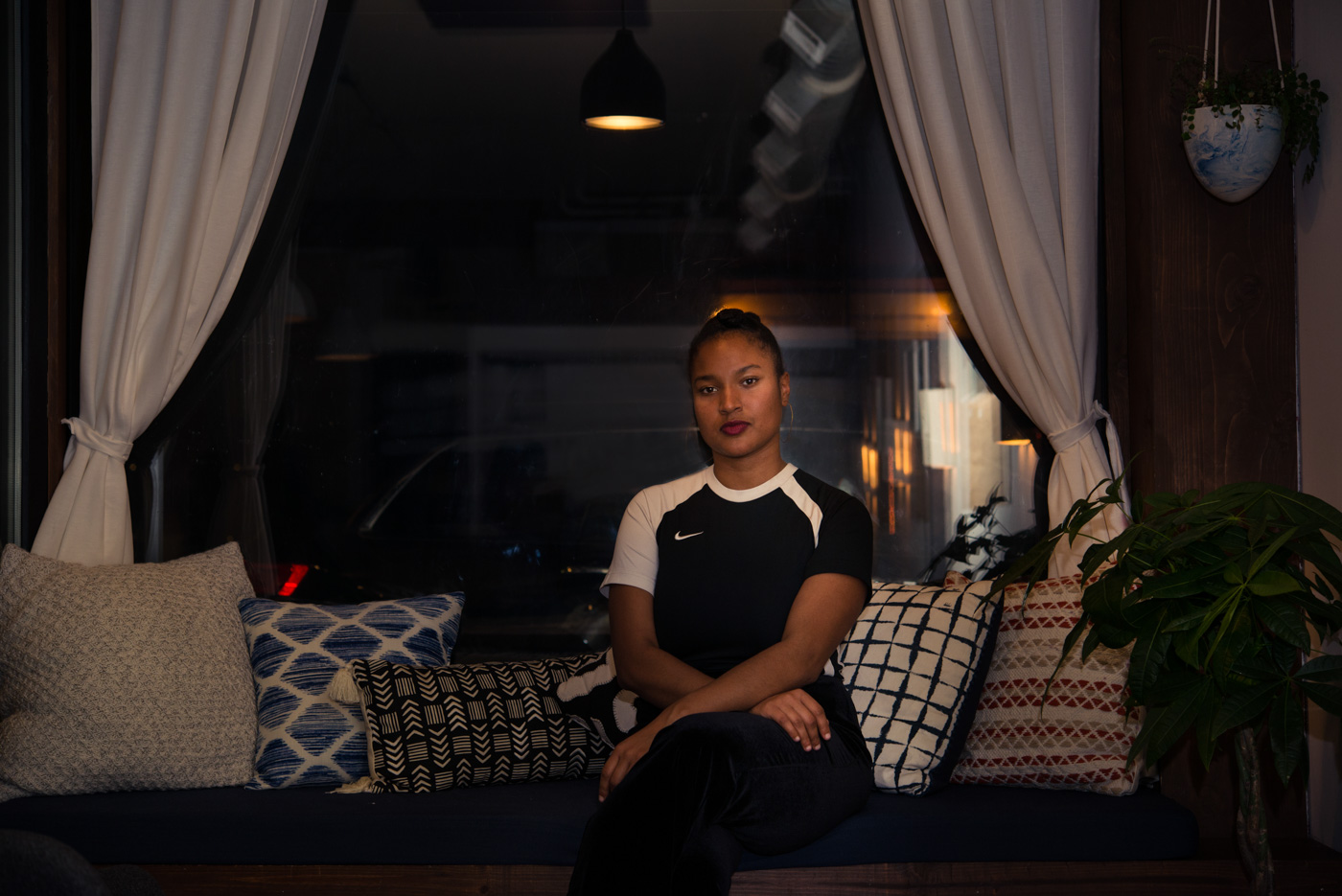
Describe your journey with veganism and how it has influenced your style of cooking.
I became vegan at the age of sixteen, and I came at it for health reasons. I didn’t necessarily have the best idea of what health was at the time, but I eventually ended up paying more attention to ingredients and what actually went into food. For me, veganism is tied into wellness and being in tune with how your body feels. The feeling you have after you eat is extremely important to me. After my fellowship ended, I started working in and eventually managed a friend’s vegan bakery and café in Bed-Stuy. I learned some essential management skills there, as well as the speed it takes to be a line cook; but I developed most of my cooking technique from my own diet limitations. I eventually stopped eating refined sugar and gluten, and those constraints made me reinterpret and create my own recipes since there just wasn’t anything already out there for me within those limits. I’ve also had jobs cooking for people with extreme allergies and other dietary restrictions, which was insanely difficult, but now allows me to accommodate almost any diet.
This meal is created for you—I would say this is the subtitle for Black Feast. Can you elaborate on this?
The idea of Black Feast came from a book I was reading, where the assumed “you” was a black person. Whenever [the author] wrote “you” he was talking about me. I started tearing up as I was reading because it felt like it was the first time a stranger had written something that was addressing me so directly. There’s a kind of discomfort I’m used to everywhere that comes from the assumed audience always being white. It’s prevalent in social situations, magazines, books, and in the clothes I shop for. In terms of the food and art I’ve created, this ubiquitous discomfort hasn’t allowed me to be completely intentional with my audience. So I was motivated to create something that was for other black people. I wanted to create something where me and the black community were able to be seen. That’s something that is rare for me living in Portland, and honestly rare in all of the places I’ve lived in. That doesn’t mean the dinner isn’t for white people; it just means it is for black people. Seeing something created for me is so powerful.
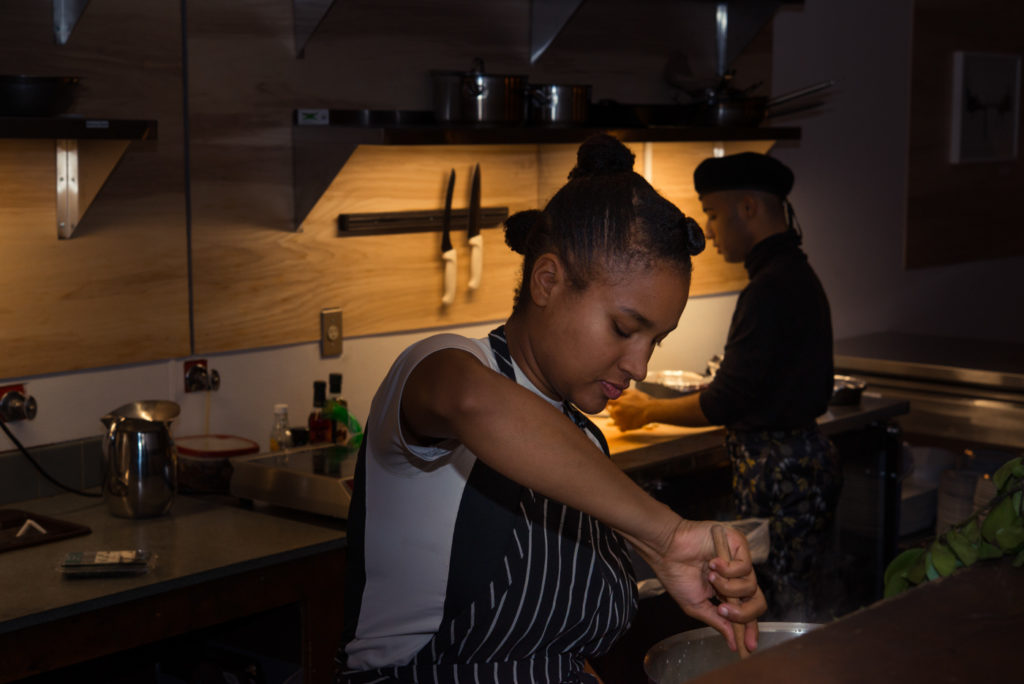
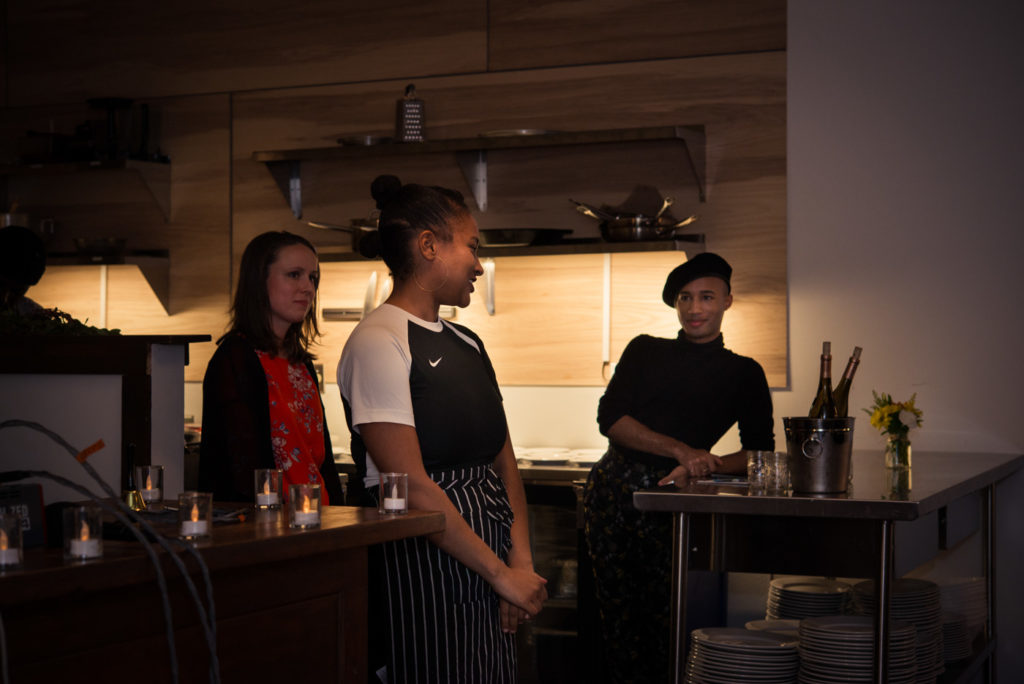
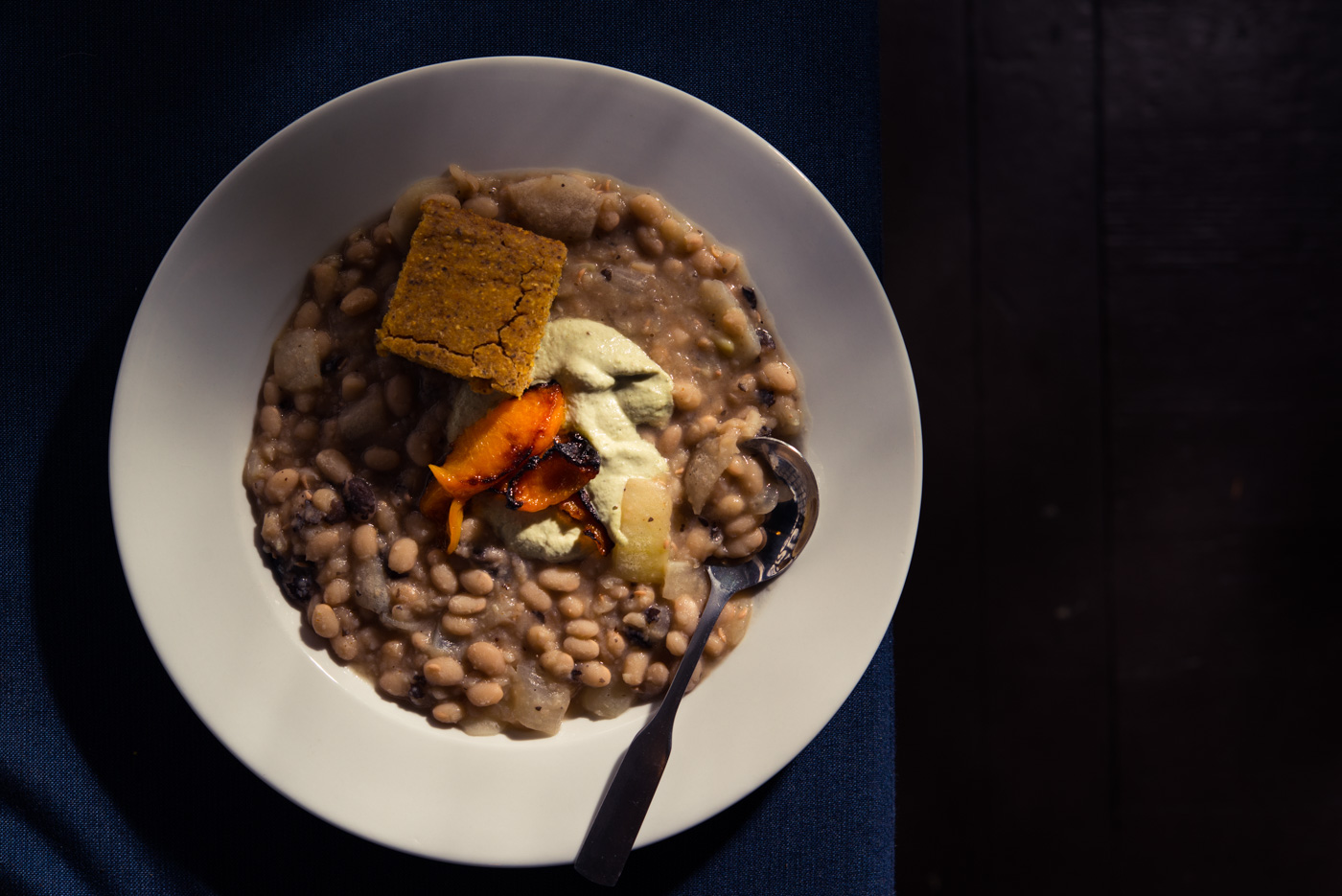
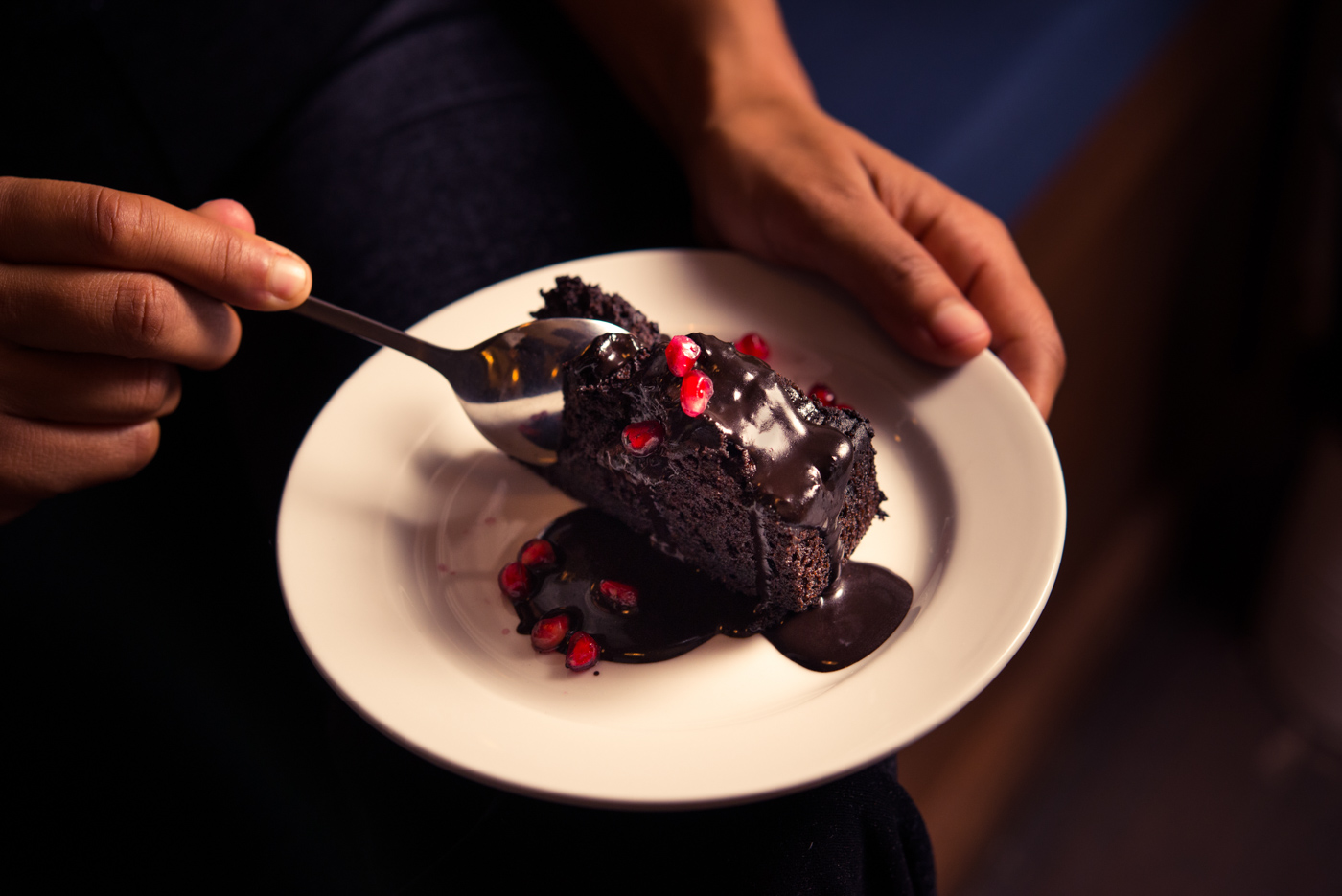
Nina Simone was your inspiration for this dinner. Why did you choose the album ‘Nuff Said! in particular?
It took awhile for me to pick an album because Nina Simone has so many that speak to me. I couldn’t really put into words what I was looking for at first, but I realized I was looking for something that felt relevant to what is happening now. All of the feelings of anger, sadness and grief within the black community are all being experienced now. In terms of Nina, that album is also a reflection of how well she can tell stories. It felt extremely powerful and necessary to choose ‘Nuff Said!
Your intent for this dinner is to explore a different kind of sensory engagement with Nina’s music. Can you describe the process of creating flavor profiles?
I’m trying to create something because I don’t know how to necessarily describe it in words. The best thing someone said after my last dinner—which was inspired by Audre Lorde—was, “I laughed, I cried, and I got angry.” And that was the highest praise for me. Food is an effective means of communication, whether you’re trying to say something about a feeling or time. For example, the course for “Peace of Mind” takes me to the specific time at which the album was being made. There were all of these riots and protests going on and so much violence against the black community. And the meal is about needing a mental escape from a high-stress situation. The food created for “Peace of Mind” is a savory brown rice pudding with collard greens and maple-roasted sweet potatoes. I wanted it to be the meal you come home to made my your mom, dad, or auntie during all this craziness and violence that’s happening outside.
I’m really interested in what you did with “Why” because that song is so complex. Nina Simone has a calmness about coming to terms with Martin Luther King Jr.’s death, and there’s an underlying, yet grand sense of anger in her tone and delivery.
That song was very difficult because there are so many parts to it and it’s so long. The “Why” course is white bean stew with caramelized peaches, cornbread, and a sage cashew cream. I wasn’t going to make a dish that would be a culmination or a synopsis of everything going on in the song, because then it would be all over the place. I thought a lot about MLK and his roots. I was thinking about Georgia, where he is from. I was thinking of loss, the sweetness of having lived, and the history of a place and person. There’s beauty in the song that is coming out of this tremendous loss. I wanted the meal to be nourishing and filling, and I wanted to have an element of classic soul food from Georgia, as well as an element of surprise. I was looking at different herbs that grow in Georgia. And I was thinking about how much emotional weight sage has and how much of a healing plant it is.
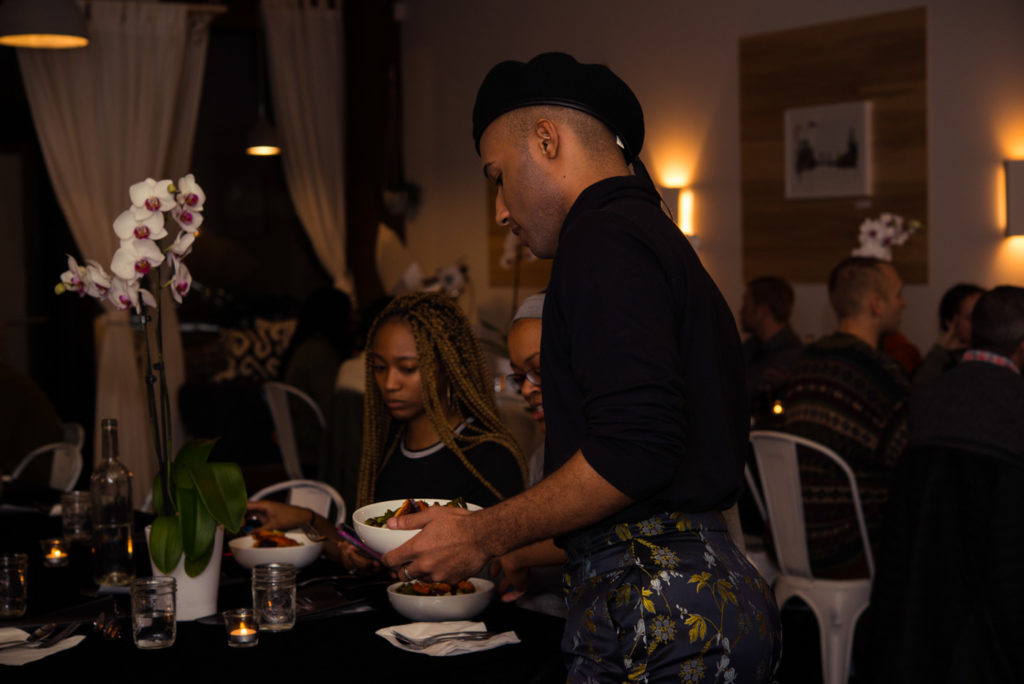
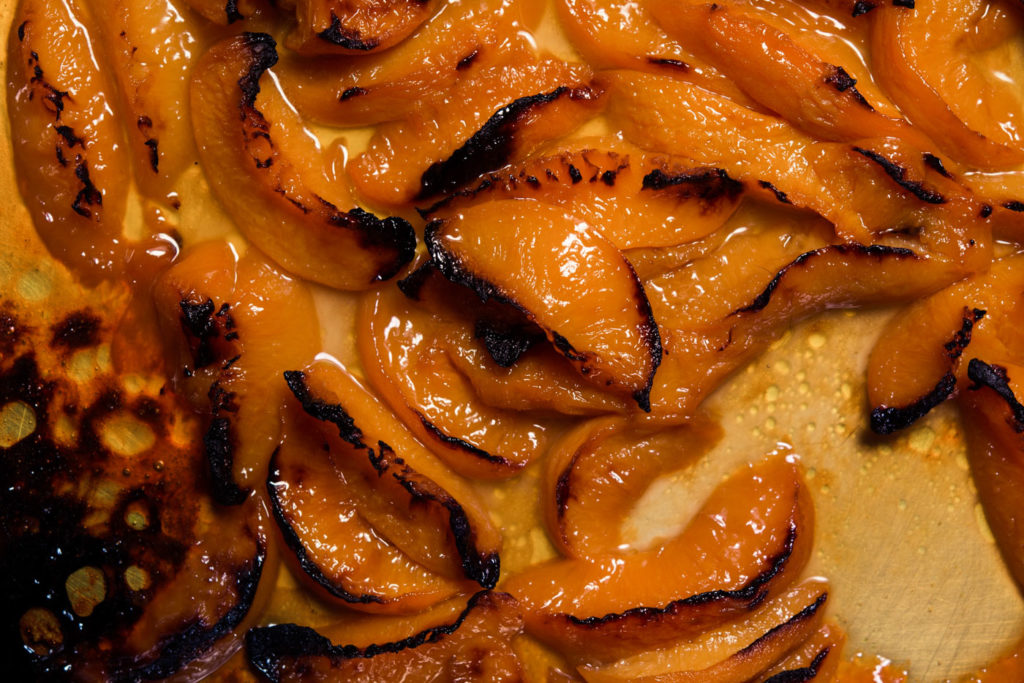
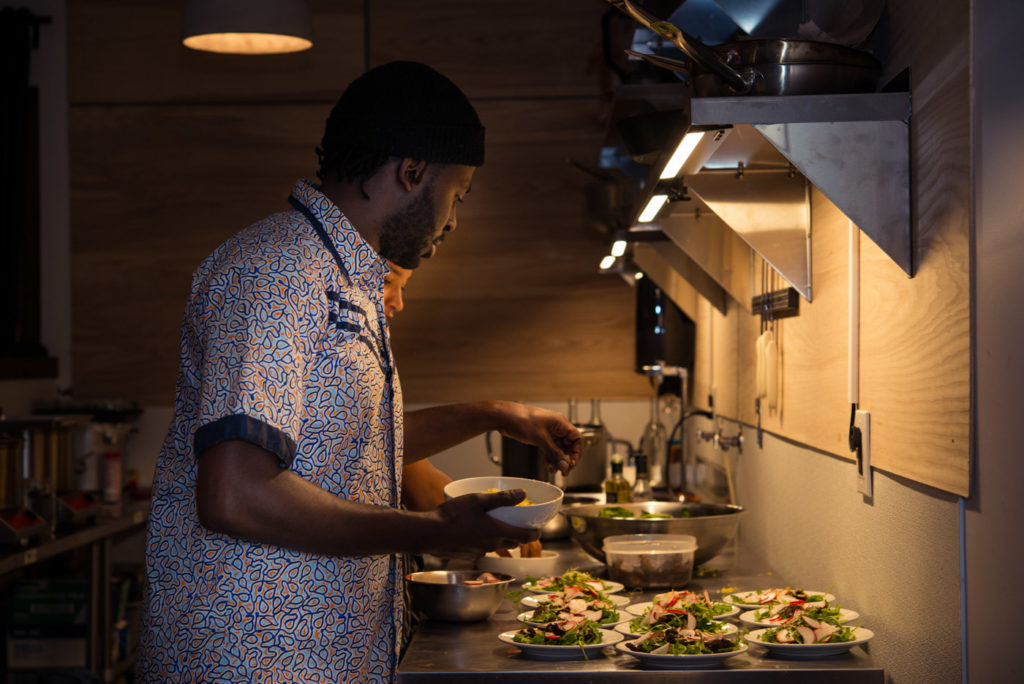
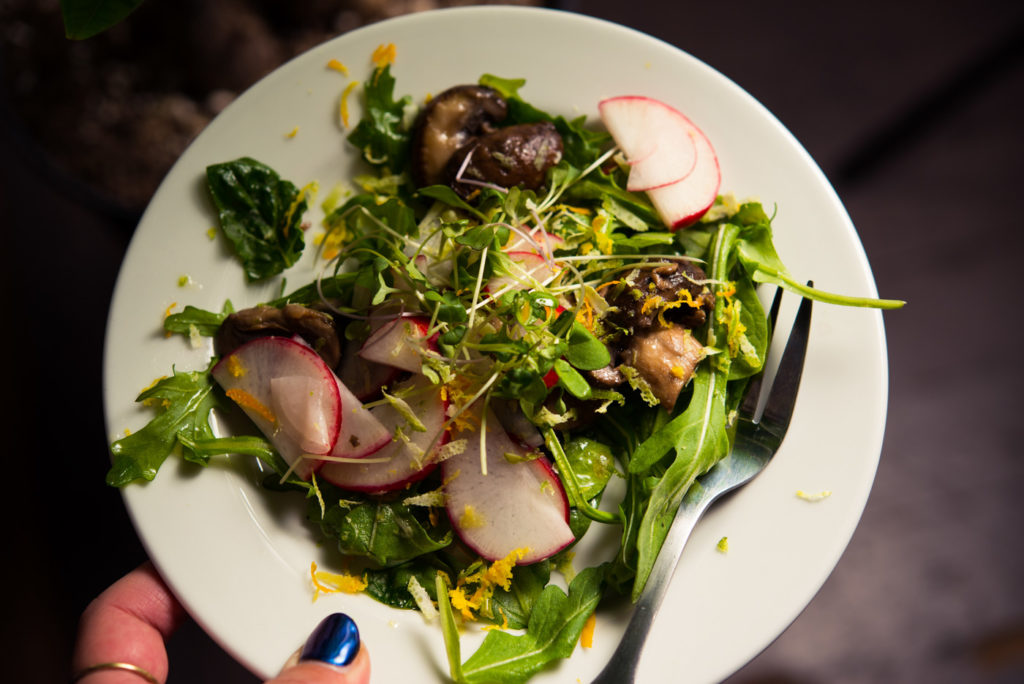
“That doesn’t mean the dinner isn’t for white people; it just means it is for black people. Seeing something created for me is so powerful.”
How important do you think it is to have food be the unifying component in the black community? And how do you see yourself as a creator in this community?
I see everything through the lens of food. It’s an art form and it’s a way to connect. It’s a way to tell stories and our personal histories. I love that way of connecting with people, and to me it feels essential. I definitely feel like less of a creator and more of an interpreter. There are so many different ways to tell a story; I wanted to make a space where the story can be told. ‘Nuff Said wasn’t something I created, but I wanted to create a space where connections could be drawn and the story of the album could be interpreted through food. That’s what Black Feast is all about—creating a space where people can come and draw connections.





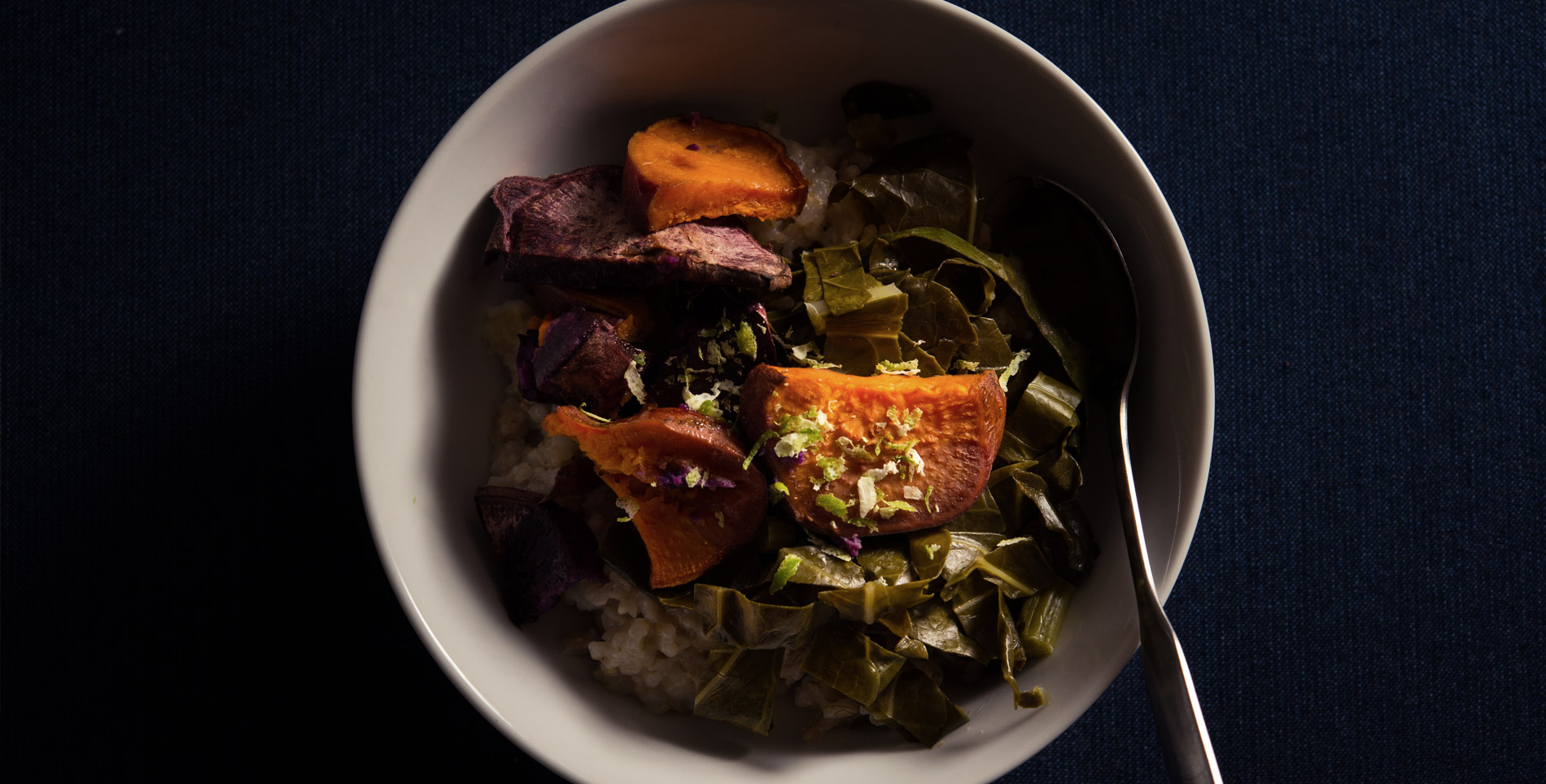

Our comments section is for members only.
Join today to gain exclusive access.